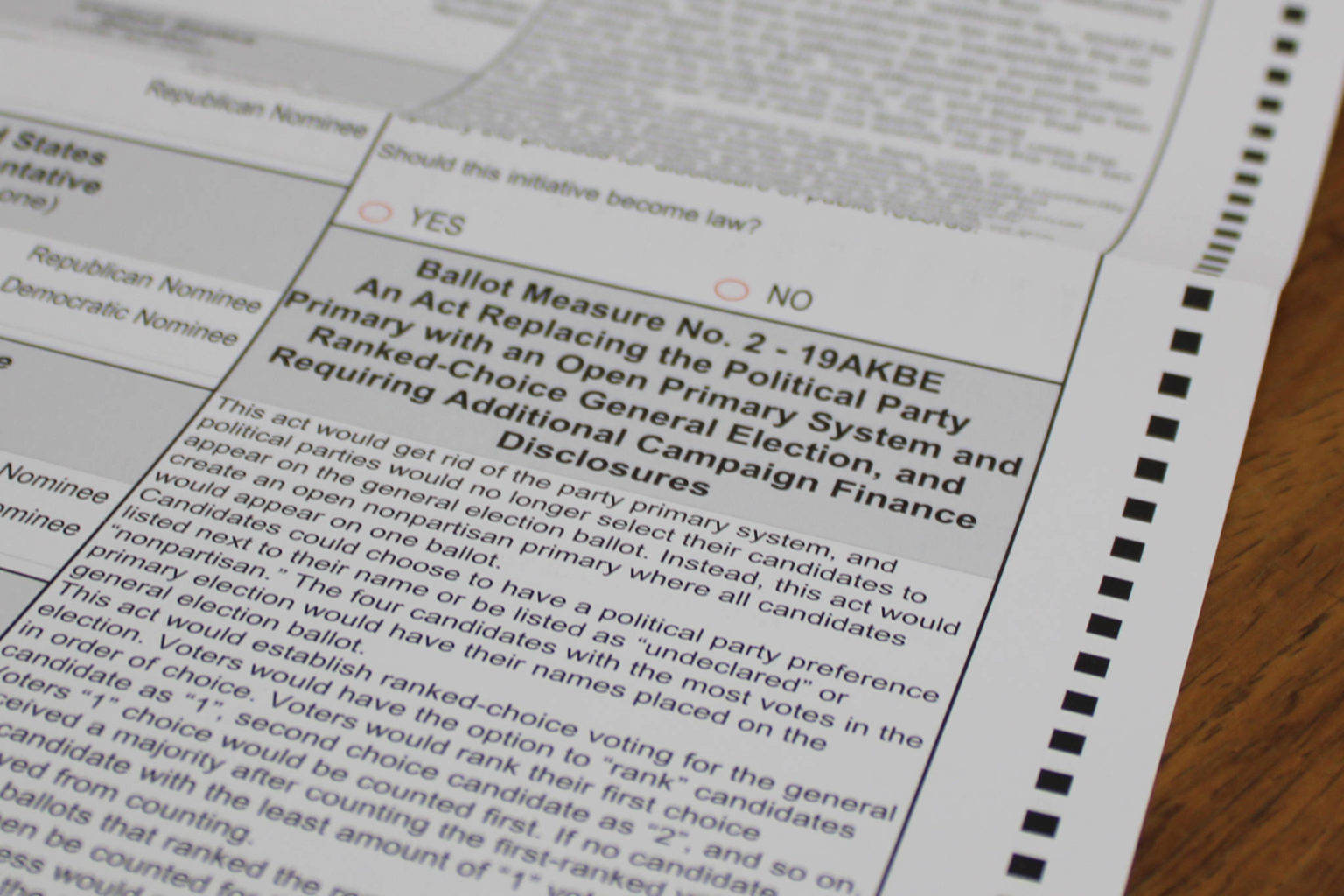A package of election reforms has passed, according to the latest unofficial election results from the Alaska Division of Elections.
Ballot Measure 2 would establish open primaries, ranked-choice voting and add additional financial disclosure requirements in state elections. In the latest results on Tuesday, the measure had 172,132 “yes” votes or 50.49% to 168,800 “no” votes or 49.51%.
“Alaskans felt they didn’t have the choices they wanted, that legislators weren’t really accountable to them, they were accountable to the (political) party,” said Scott Kendall, legal counsel for Alaskans for Better Elections, the group sponsoring the initiative.
In fact, the poor showing on Election Day made the campaign confident they would ultimately prevail based on its own data, Kendall said. The campaign had polled some voters and found that many of their supporters planned to vote by mail, he said, and as more mail-in ballots were counted the election results were coming more in line with the group’s own projections.
Measure 2’s supporters include the Alaska League of Women Voters, the Alaska State Employee Association and the Alaska Libertarian Party.
The group opposing the measure, Defend Alaska Elections, said the measure would create confusion for voters and was being pushed by outside special interest groups.
Speaking to the Greater Juneau Chamber of Commerce in September, Defend Alaska Elections campaign manager Brett Huber said open primaries and ranked-choice voting have created chaos in other states where they’ve been implemented.
Huber has called Measure 2, “laborious and hard to understand” and “a failed experiment that has failed in other places.”
Defend Alaska Elections did not immediately respond to request seeking comment.
Last Monday, Kendall, however, remained confident the measure would pass, and that the campaign had succeeded in convincing Alaskans there is a better way to conduct elections. The campaign had tapped into frustration Alaskans felt their lawmakers were not accountable to voters, but to party establishment.
It didn’t change minds, Kendall said, but several incumbent Republicans losing their seats in the state’s primary elections served as a wake-up call for Alaskans and how their elections work.
Senate President Cathy Giessel of Anchorage and Sen. John Coghill of Fairbanks, both Republicans, lost their seats in a primary election where only 20% of registered Alaskans voted. According to the most recent results from DOE, nearly 60% of registered Alaskans voted in the 2020 General Election.
Assuming the measure passes, Kendall said Alaskans for Better Elections would begin to work on outreach and education, to inform the public about how the reforms in the measure will work.
“We stand ready to work in partnership with DOE,” Kendall said. “We share a common interest in ensuring that (Alaska’s elections are) going to be run in a world-class way.”
Contact reporter Peter Segall at psegall@juneauempire.com. Follow him on Twitter at @SegallJnuEmpire.


